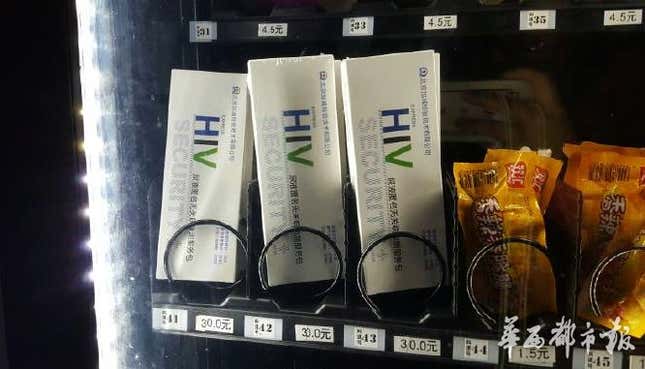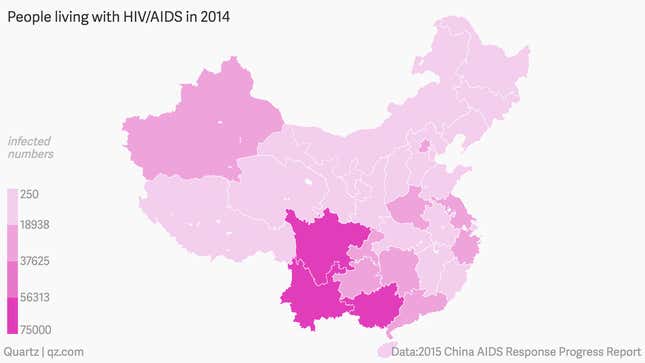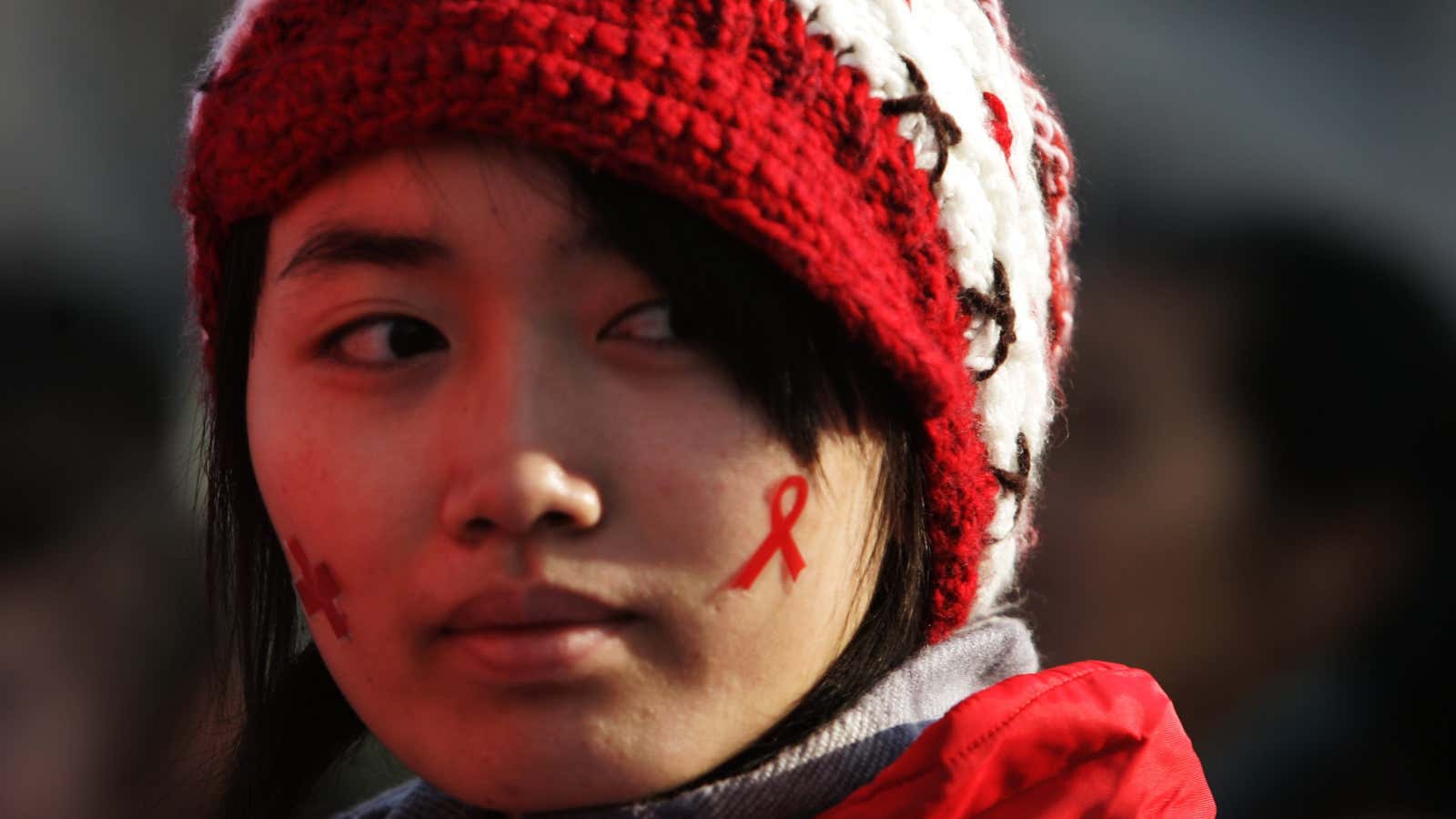As a growing number of young people (link in Chinese) become infected with human immunodeficiency virus (HIV) in China, a Chinese university in a high-risk area has started selling HIV testing kits in vending machines.
The kits, which cost less than $5, are sold alongside snacks and drinks in the machines at China’s Southwest Petroleum University in Sichuan Province. The province has a high prevalence of HIV and AIDS (pdf, page 7) and was among the top three Chinese provinces, that accounted for nearly half of China’s half million cases (link in Chinese) at the end of 2014, according to China’s 2015 AIDS report.

While similar kits sell for around 300 yuan ($45) on online shopping site Taobao (link in Chinese), the kits in the university’s vending machine were around 30 yuan ($4.43). The price is subsidized by a charity, according to local newspaper Huaxi Daily (link in Chinese, registration required).
Students use the HIV kits by taking their own urine samples and sending them back to a lab to be tested, the university’s school medical center said, (link in Chinese, registration required). The process is anonymous and the test results can be accessed online.
HIV/AIDS infection rates among China’s young people are growing at an alarming rate. From 2011 to 2015, infection grew in the 15-24 age group by 35%. About 1.6 % of the nation’s 575,000 HIV/AIDS cases were students at the end of 2015, according to Wu Zun You (link in Chinese), the director of National Center for AIDS Control and Prevention.
The university in Sichuan is the first place (link in Chinese, registration required) these cheap self-testing kits have been offered to students. The pilot project will be wound up at the end of this year, Shen Jie, deputy president of China Association of AIDS Prevention and Control told news portal Chinanews.
Sichuan, Yunnan, and Guangxi provinces are top three of 12 Chinese provinces (pdf, p.7) with over 10,000 cases of HIV or AIDS by the end of 2014.

HIV, which is transmitted through body fluids like blood and semen, can lead to the deadly disease AIDS, when the body’s immune system is too weak to fight off virus. China’s growing problem with the disease stems in part from the lack of sex education, experts say.
Infected patients at Beijing You’an Hospital in the 15-24 age group grew from 11 in 2005 to 254 in 2015, Sun Lijun, a doctor from the sex health department of the hospital, told state broadcaster CCTV on Nov. 30, 2015 (video, link in Chinese). “Most of the patients lacked sex education and didn’t take precautions,” Sun said.
